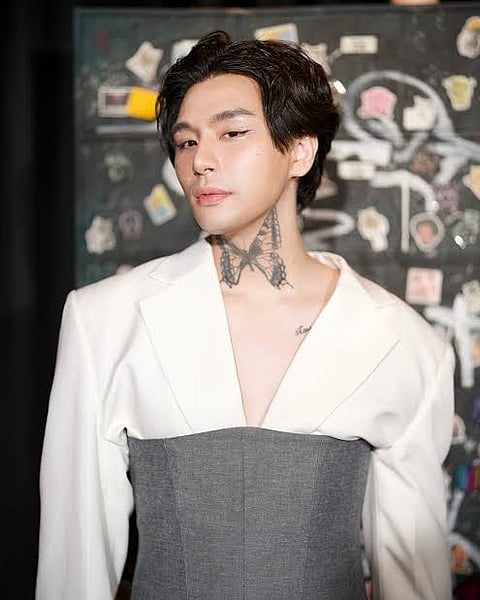
- NEWS
- the EDIT
- COMMENTARY
- BUSINESS
- LIFE
- SHOW
- ACTION
- GLOBAL GOALS
- SNAPS
- DYARYO TIRADA
- MORE

Actor and director Fifth Solomon is opening up about one of the most difficult moments of his life.
In a recent social media post, the Single Bells and My Sassy Girl filmmaker shared that he was rushed to the emergency room after suffering a severe mental breakdown and full-blown panic attack. Alongside his message, he posted a photo taken by his sister just after the incident — showing him quiet, exhausted, and far from the upbeat image fans are used to seeing.
“This was me just weeks ago. Rushed to the emergency room because of a mental breakdown and a full-blown panic attack. This photo was taken by my sister — after I finally calmed down. It’s a version of me that’s far from what most people are used to seeing," he wrote.
Following the incident, Solomon underwent a series of medical and psychological evaluations. He was diagnosed with bipolar disorder — adding to what he described as ongoing struggles with depression, borderline personality disorder (BPD), and anxiety, which he had managed privately for years.
Beyond the diagnosis, he pointed to online bullying and public criticism as major contributors to his mental decline.
“People who didn’t even know me said the meanest things, as if they did. And honestly, some didn’t just want me to fail—they wanted me dead," he said.
Solomon, known for his on-screen energy and humor, has been a consistent presence in the local entertainment scene — from his Pinoy Big Brother stint to directing digital and mainstream films. But in his post, he acknowledged how isolating and unrelenting the industry can be behind the scenes.
He also reflected on how hardship exposed the real nature of relationships around him.
“When you have nothing, that’s when you find out who truly values you, who genuinely loves you, and who was never real in the first place.”
Despite the vulnerability, the message was not one of defeat. Solomon closed his post by emphasizing the importance of choosing self-preservation and moving forward.
“So now, I choose to be loyal to myself. I trust no one blindly. And I keep going — because I deserve to live, to heal, and to rise again.”
Solomon’s decision to speak openly about his mental health offers an important reminder of the realities behind public personas — and serves as a powerful message for those going through similar struggles.
